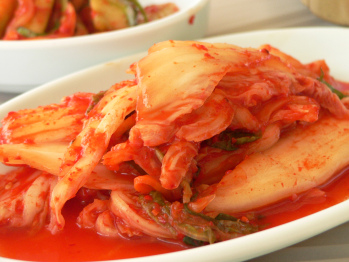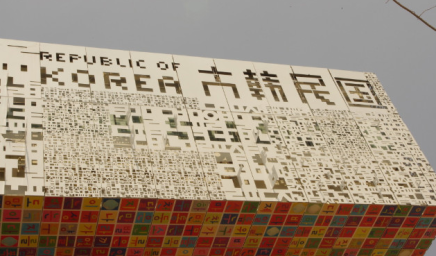Table of Contents
On Hangul Supremacy & Exclusivity – On “Pure” Korean Words
On “Pure” Korean Words and Korean Linguistic Purism
Claim: Koreans do not need to rely on Sino-Korean words. The Korean language can be “purified” of Sino-Korean words.
Rebuttal: Sino-Korean words are just as Korean as so-called “pure” Korean words. 60-70% of the Korean vocabulary is made up of Sino-Korean words. Many Sino-Korean words are words used only in Korean. Furthermore, tons of so-called “pure” Korean words were originally Sino-Korean words whose pronunciations have deviated from their original pronunciations. Korean linguistic purism is misguided. It is completely natural for borrowing of this type.
Introduction
Koreans have been using Hanja, or more accurately the pictogram predecessor to it, since the Neolithic Age. With being in close proximity to China, where Hanja originated, for such a long time, it should be no surprise — and is perfectly natural — that there are many words based on Hanja in the Korean language. In fact, it is estimated that 60-70% of the Korean vocabulary is Sino-Korean words and in actual use within a sentence the rate can be as high as 90%. Only 25% of the Korean vocabulary is made up of so-called “pure” Korean words (純—, 순우리말).
As a comparison, approximately 60% of the English vocabulary is from Latinate sources and only 30% of the English vocabulary is from Germanic sources. Yet, unlike many Korean speakers, who think that just because a word is a Sino-Korean one that it is “Chinese” and therefore “foreign”, there is no strong prejudice against Latinate words among English speakers. The problem is that: (1) many Korean speakers cannot tell apart Sino-Korean words from “pure” Korean words; (2) many Sino-Korean words are of Korean coinage; and (3) many so-called “pure” Korean words were originally Sino-Korean words.
Difficulty of Telling Apart Sino-Korean Words from “Pure” Korean Words
Since Sino-Korean words fall largely in line with Korean phonology (i.e., how Korean naturally sounds), they are difficult to tell apart sometimes, even for Koreans who know Hanja. For instance, which of the following words are Sino-Korean or “pure” Korean?
- Danggeun (당근) (“Carrot”)
- Seopseophada (섭섭하다) (“To be disappointed”)
- Goyohada (고요하다) (“To be quiet”)
- Muri (무리) (“Group”)
- Seorap (서랍) (“Drawer”)
- Saenggak (생각) (“Thought”)
Cannot tell? None of them are Sino-Korean words. (The words Danggeun and Saenggak are theorized to be Sino-Korean words, but there is no conclusive evidence.) Sino-Korean words sound just like “pure” Korean words. The average Korean speaker has difficulty telling them apart too. Here is one Korean blogger that was shocked at finding out that the word “Dodaeche” (都大體, 도대체) meaning “what in the world” is a Sino-Korean word, not a “pure” Korean word. Up until researching for this post, even this blogger thought that the word “Horang’i” (虎狼-, 호랑이), meaning “tiger,” is a “pure” Korean word. There are very many similar articles in the Korean blogosphere and on Twitter of Korean speakers being surprised at which words were Sino-Korean and which were not.
Sino-Korean Words Used Only in Korean
Regardless, the primary criticism of Sino-Korean words are that they are “foreign.” This is mostly because most Koreans have never bothered to study Chinese or Japanese. Those that have have been surprised that there are plenty of Sino-Korean words that are either only used in Korean or used quite differently from Chinese or Japanese. (This blogger is not too familiar with Mandarin, and is relying on other Korean sources.) For instance, take the Sino-Korean word “Gongbu” (工夫, 공부). Both Chinese and Japanese have words that use the same characters. In Korean, however, it means “to study”; in Chinese, “time”; and in Japanese, “to deliberate.” While all three languages have the word with the same characters, at least the Korean word has a separate etymology. One theory is that it comes from the Buddhist term “Jugongbu” (做工夫, 주공부), which referred to a groundskeeper at a Buddhist temple. The word eventually became associated with someone learning Buddhist sacred texts and then became the verb “to study.” The Sino-Korean word thus is Korean coinage and of different meaning. There are plenty of other Sino-Korean words that fall under this category:
- Supyo (手票, 수표) (“Check”)
- Yangmal (洋襪, 양말) (“Sock”)
- Pyeonji (便紙, 편지) (“Letter”)
- Chulshi (出市, 출시) (“To release [a product] into the market”)
- Juyuso (注油所, 주유소) (“Gasoline stand”)
- Pyeoneuijeom (便宜店, 편의점) (“Convenience store”)
- Geupgiya (及其也, 급기야) (“In the end”)
- Dodaeche (都大體, 도대체) (“What in the world” or “what the heck”)
- Eochapi (於此彼, 어차피) (“Anyway”)
- Hayeogan (何如間, 하여간) (“At any rate”)
- Obiirak (烏飛梨落, 오비이락) (“As soon as the crow flies, the pear drops”)
So-Called “Pure” Korean Words

In addition to Sino-Korean words only used in Korean, there are tons of so-called “pure” Korean words that were actually originally Sino-Korean words, whose pronunciations have deviated from their Hanja pronunciation. (Moreover, to this blogger’s knowledge, these words are not included in the 60-70% figure and seem to be often considered “pure” Korean or at least “native” vocabulary. If so, the 60-70% figure is lower and the 25% figure is higher than they should be.) The most famous of these words is Kimchi (김치), the pickled vegetables most associated with Korean cuisine. The original word was Timchae (沈菜, 팀채), which is of Korean coinage, meaning “soaked vegetables,” and would be pronounced Chimchae (침채) in Modern Korean. The word eventually morphed to Dimchae (딤채) and then Kimchi. Even the dialectal word for Kimchi used in some regions, Ji (지), was originally a Sino-Korean word, Jeo (菹, 저), meaning “pickled.” Here are some other “pure” Korean words that fall under this category. Many of these words concern food:
- Gochu (고추) (“Red pepper”) ← Gocho (苦草, 고초) (“Bitter grass”)
- Baechu (배추) (“Nappa cabbage”) ← Baekchae (白菜, 백채) (“White vegetable”)
- Oksusu (옥수수) (“Corn”) ← Okchokseo (玉蜀黍, 옥촉서)
- Gamja (감자) (“Potato”) ← Gamjeo (甘藷, 감저)
- Ojingeo (오징어) (“Squid”) ← Ojeokeo (烏賊魚, 오적어) (“The fish that crows steal”)
- Bobae (보배) (“Treasure”) ← Bopae (寶貝, 보패)
- Gage (가게) (“Store”) ← Gaga (假家, 가가) (“Temporarily built house”)
- Seongnyang (성냥) (“Matchsticks”) ← Seokryuhwang (石硫黃, 석류황) (“Rock sulfur”)
- Cheondung (천둥) (“Thunder”) ← Cheondong (天動, 천동) (“Heaven’s movements”)
- Gwanyeok (과녁) (“Target”) ← Gwanhyeok (貫革, 관혁)
- Jimseung (짐승) (“Beasts”) ← Jungsaeng (衆生, 중생)
- Jireongi (지렁이) (“Worm”) ← Jiryong (地龍, 지룡)
- Najung (나중) (“Later”) ← Naejong (乃終, 내종)
- Ganan (가난) (“Poverty”) ← Gannan (艱難, 간난)
- Sseolmae (썰매) (“Sled”) ← Seolma (雪馬, 설마)
